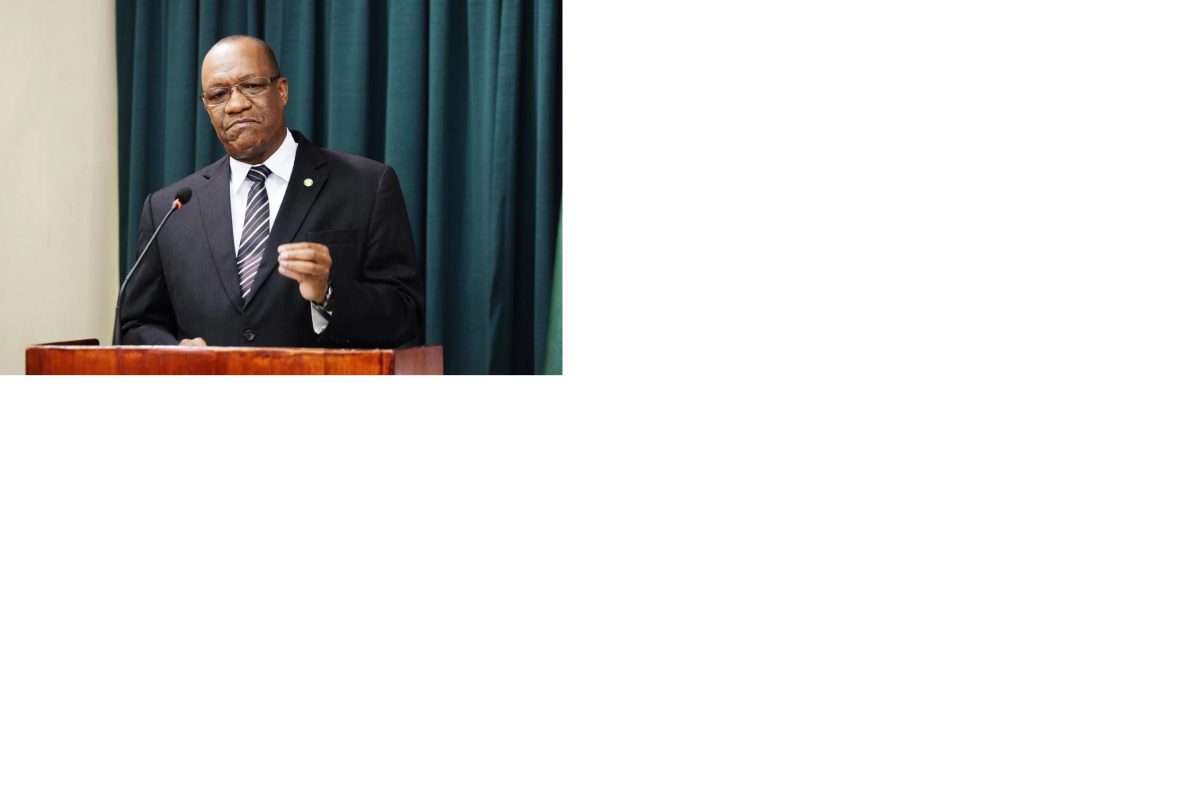Leader of the Opposition, Joseph Harmon has called on President Irfaan Ali to confirm the acting Chancellor of the Judiciary and the Chief Justice.
“Irfaan Ali has to take steps to ensure those two women are confirmed in their jobs. I am prepared to do what is necessary to ensure that it happens,” Harmon told an International Women’s Day Forum at Parade Ground on Monday.
According to Harmon the two women who hold the posts, Justice Yonette Cummings-Edwards and Justice Roxane George “must be confirmed in those positions as that is how they will be able to stand firm”.
“Keeping people in acting positions is a way of controlling people,” he declared.
His comments echo those of the last Leader of the Opposition Bharrat Jagdeo, who in 2017 declared that it was the President who has to make the first move to resolve the decade-long failure to appoint a substantive Chancellor and Chief Justice.
Article 127 (1) of the Constitution stipulates that “the Chancellor and the Chief Justice shall each be appointed by the President, acting after obtaining the agreement of the Leader of the Opposition.”
In December 2017 Jagdeo warned that he would not allow himself to be coerced into accepting nominees just to fix the situation. At this point Justices Cummings-Edwards and George had held the posts for nine months following a temporary arrangement between former President David Granger and Jagdeo.
Their predecessors, Justices Carl Singh and Ian Chang both retired without being substantively appointed Chancellor and Chief Justice, respectively.
Jagdeo, under whose tenure both Justices Singh and Chang were appointed in acting capacities, stressed at the time that there shouldn’t be a gap in the leadership at the level of the judiciary.
Several days later Granger invited Jagdeo to a meeting to discuss the possible appointment of then Chief Justice of Belize, Kenneth Benjamin as Chancellor of the local judiciary while the acting Chancellor, Justice Yonette Cummings-Edwards was to be considered for the substantive post of Chief Justice.
These nominees were identified after a panel considered applications received from across the Caribbean region.
Two months later on February 7, Jagdeo in a letter to the president made it known that after undertaking the requisite due diligence he could not support either of the two being appointed. He did not offer any reason.
The process for substantive appointments to the post has since remained stalled.
CCJ President Justice Adrian Saunders and his predecessor Sir Dennis Bryon have publicly described the situation as unacceptable.
Sir Dennis, the then CCJ president, while delivering the keynote address at 37th Annual Bar Association Dinner in November 2017, had said that it was disappointing that no substantive Chancellor has been appointed after Justice Desiree Bernard’s departure and noted that having both offices being led by judges acting in the respective capacities is “a most unfortunate state of affairs.”
He had bemoaned the inability of successive presidents and opposition leaders to agree on appointing a substantive Chancellor of the Judiciary, while warning that prolonged acting appointments pose a genuine “risk” to the promise to citizens of an independent and impartial judiciary.
Calling Guyana’s failure to make substantive judicial appointments a “significant stain” on the rule of law, then President-Designate of the CCJ Justice Adrian Saunders had said in May 2018 that the situation was inexcusable.
“The ability of the judiciary to resolve matters must be a critical dimension of the rule of law. In this regard, I have to say a significant stain on the rule of law so far is Guyana’s inability over the last 13 years to appoint a substantive office holder to the position of Chancellor…There really can be no excuse for that kind of situation,” he said while presenting on `The rule of law and the Caribbean Court of Justice’ at the Fourth Conversation on Law and Society, hosted by the University of Guyana at Duke Lodge. Three years later, the situation remains unchanged.
Since assuming office on August 2nd, the President has refused to consult with Harmon on any of the constitutional appointments which require his input.
Letters from the Office of the Opposition Leader to the Office of the President have gone unacknowledged while Ali demands that Harmon “recognize his government”.






